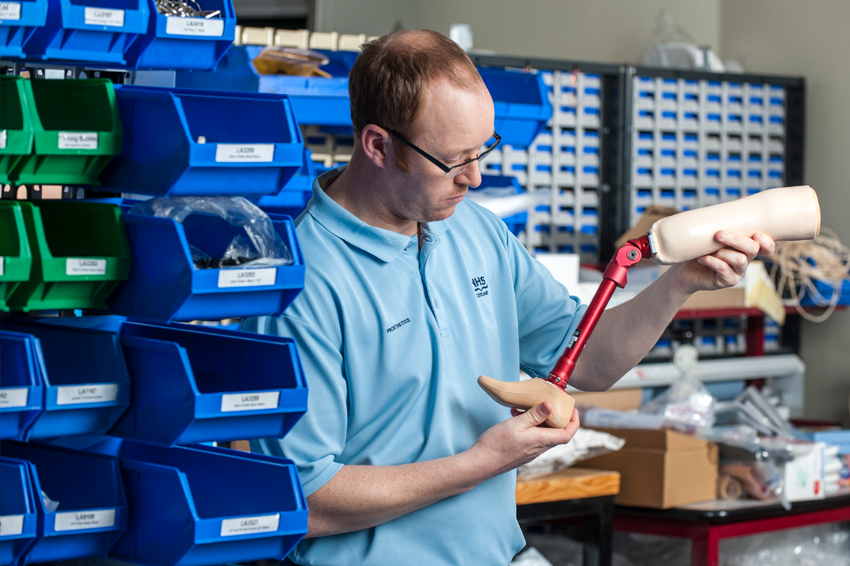Previous
Podiatry support worker
You can become a prosthetic support worker by applying for a vacancy on our recruitment website or doing a Modern Apprenticeship.
Prosthetic support workers work with prosthetists to design, make, and fit artificial limbs for patients.
Prostheses are used to substitute or supplement missing limbs. These are made from a wide range of materials, such as special plastics, metals, leather and carbon fibre.

To become a prosthetic support worker, you need a good standard of education. There are no specific entry requirements, but useful subjects include:
Speak to your guidance teacher about subjects offered at your school.

You may find it helpful to get some healthcare experience by doing a work placement or volunteering. You’ll get training, increase your knowledge, and learn new skills. This could help you when applying to university, college or a new job with NHSScotland.
A Modern Apprenticeship will help you get the knowledge, skills, and experience you need to reach your career goal.
Learn about the Modern Apprenticeship in Engineering.
As a prosthetic support worker, you'll use the prosthetist's designs and specifications to make artificial limbs to help restore a patient’s mobility.
Often, you’ll be involved in the design stage and will provide technical support and expertise. You will also be responsible for maintaining and repairing prostheses.
Tasks include:
You’ll also be expected to keep up to date with the latest manufacturing techniques and technologies.
You'll need these skills:
As a prosthetic support worker, you’ll need to have good practical skills and some knowledge of IT and CADCAM.
Prosthetic support workers work with other healthcare professionals, including:
You could work in:
When joining the NHS, you will work through the Mandatory Induction Standards. These standards are designed to help you work safely and must be completed within the first 3 to 6 months of employment.
You may also be encouraged while in the post to work towards further education qualifications. These may include:
Getting experience as a healthcare support worker can be very helpful if you decide you want to go to university and study to become a registered prosthetist.

Discover the skills and qualifications you’ll need for each role and what the work will be like.
Explore careers
We'll guide you through the recruitment process, from applying online to interview preparation.
Help with recruitment